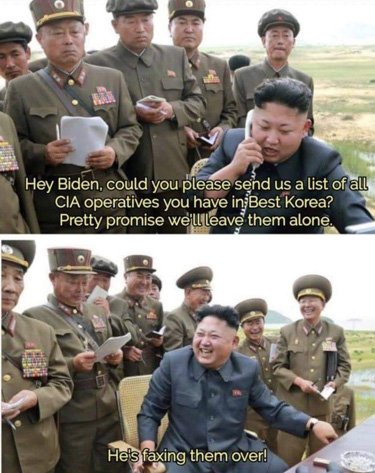
Pentagon Gets Revenge
Afghanistan Debacle, Official Misconduct, Stuart Scheller, USMC
Back in August, Marine Lt. Col. Stuart Scheller called for accountability for military leadership on the disastrous and catastrophic exit from Afghanistan. He did so knowing he was risking his career and would likely face punishment for doing so.
“The reason people are so upset on social media right now is not because the Marine on the battlefield let someone down,” Scheller said. “People are upset because their senior leaders let them down and none of them are raising their hands and accepting accountability or saying, ‘We messed this up.'”
“I’m not saying we’ve got to be in Afghanistan forever, but I am saying: Did any of you throw your rank on the table and say, ‘Hey, it’s a bad idea to evacuate Bagram Airfield, a strategic airbase, before we evacuate everyone.’ Did anyone do that? And when you didn’t think to do that, did anyone raise their hand and say, ‘We completely messed this up.'”
Now, according to Task and Purpose, Scheller has been taken to the brig.
“All our son did is ask the questions that everybody was asking themselves, but they were too scared to speak out loud,” said Stu Scheller Sr. “He was asking for accountability. In fact, I think he even asked for an apology that we made mistakes, but they couldn’t do that, which is mind-blowing.”
He said that his son is expected to appear before a military hearing on Thursday.
“They had a gag order on him and asked him not to speak,” the senior Scheller said. “He did, and they incarcerated him. They don’t know what to do with him.”
After this story was first published, the Marine Corps issued a statement confirming that Scheller has been sent to the brig.
“Lt. Col. Stuart Scheller Jr. is currently in pre-trial confinement in the Regional Brig for Marine Corps Installations East aboard Marine Corps Base Camp Lejeune pending an Article 32 preliminary hearing,” said Capt. Sam Stephenson, a spokesman for Training and Education Command. “The time, date, and location of the proceedings have not been determined. Lt. Col. Scheller will be afforded all due process.”
Cartoon of the Week
"Saving Private Ryan" (1998), Afghanistan Debacle, Joe Biden, Michael Ramirez
Hitler Reacts to the Afghanistan Debacle
"Der Untergang" (2004), Afghanistan Debacle
HT: Vanderleun.
“Following the Taliban Takeover of Kabul, US Officials There Gave the Islamic Extremist Group the Names of American Citizens, Green Card Holders …”
Afghanistan Debacle, Joe Biden, North Korea, Satire
A Knowledgeable Afghan Hand Explains
Afghanistan Debacle, Pakistan, Sarah Chayes, Taliban
I accidentally stumbled upon a very interesting blog post on the causes of the Taliban’s success in Afghanistan on the blog of Sarah Chayes.
Sara Chayes (Andover and Harvard) is a former senior associate of the Carnegie Endowment for International Peace, an NPR reporter, and an advisor to the Pentagon. Despite all that, she seems to be highly intelligent and to have a deep first-hand understanding of Afghanistan.
For those of you who don’t know me, here is my background — the perspective from which I write tonight.
I covered the fall of the Taliban for NPR, making my way into their former capital, Kandahar, in December 2001, a few days after the collapse of their regime. Descending the last great hill into the desert city, I saw a dusty ghost town. Pickup trucks with rocket-launchers strapped to the struts patrolled the streets. People pulled on my militia friends’ sleeves, telling them where to find a Taliban weapons cache, or a last hold-out. But most remained indoors.
It was Ramadan. A few days later, at the holiday ending the month-long fast, the pent-up joy erupted. Kites took to the air. Horsemen on gorgeous, caparisoned chargers tore across a dusty common in sprint after sprint, with a festive audience cheering them on. This was Kandahar, the Taliban heartland. There was no panicked rush for the airport.
I reported for a month or so, then passed off to Steve Inskeep, now Morning Edition host. Within another couple of months, I was back, not as a reporter this time, but to try actually to do something. I stayed for a decade. I ran two non-profits in Kandahar, living in an ordinary house and speaking Pashtu, and eventually went to work for two commanders of the international troops, and then the chairman of the Joint Chiefs of Staff. (You can read about that time, and its lessons, in my first two books, The Punishment of Virtue and Thieves of State.)
From that standpoint — speaking as an American, as an adoptive Kandahari, and as a former senior U.S. government official — here are the key factors I see in today’s climax of a two-decade long fiasco:
Afghan government corruption, and the U.S. role enabling and reinforcing it. The last speaker of the Afghan parliament, Rahman Rahmani, I recently learned, is a multimillionaire, thanks to monopoly contracts to provide fuel and security to U.S. forces at their main base, Bagram. Is this the type of government people are likely to risk their lives to defend?
Two decades ago, young people in Kandahar were telling me how the proxy militias American forces had armed and provided with U.S. fatigues were shaking them down at checkpoints. By 2007, delegations of elders would visit me — the only American whose door was open and who spoke Pashtu so there would be no intermediaries to distort or report their words. Over candied almonds and glasses of green tea, they would get to some version of this: “The Taliban hit us on this cheek, and the government hits us on that cheek.” The old man serving as the group’s spokesman would physically smack himself in the face.
I and too many other people to count spent years of our lives trying to convince U.S. decision-makers that Afghans could not be expected to take risks on behalf of a government that was as hostile to their interests as the Taliban were. Note: it took me a while, and plenty of my own mistakes, to come to that realization. But I did. Read the rest of this entry »









